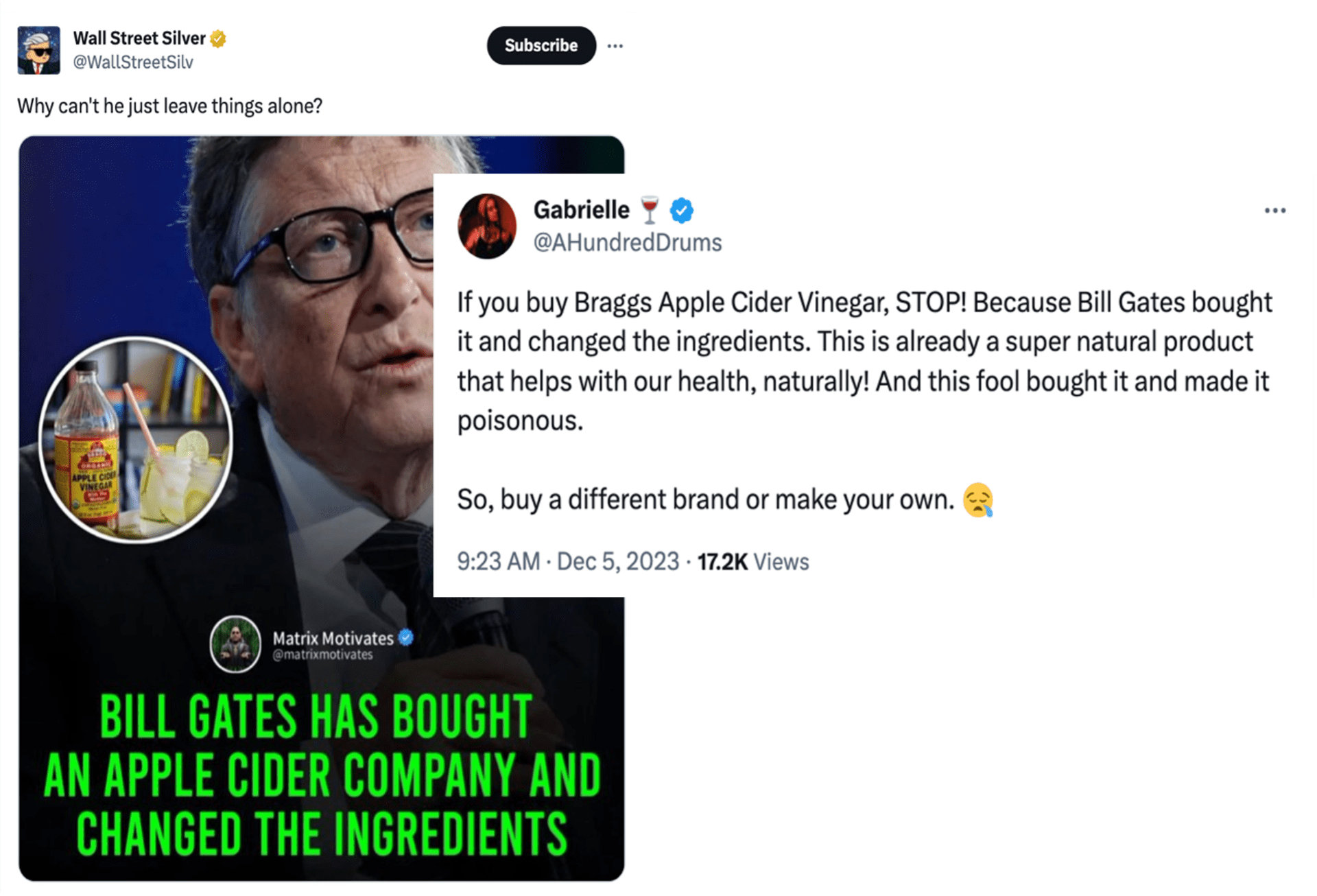In a surprising twist that has caught the attention of both tech enthusiasts and beverage lovers alike, Bill Gates has made headlines with his recent acquisition of a renowned apple cider brand. This unexpected move has sparked curiosity and excitement in various circles, raising questions about the motivations behind Gates' latest venture. As a prominent figure in the tech industry, his decisions often set trends, and this purchase is no exception. What does it mean for the business world and the beverage industry? Is there more to this story than meets the eye?
Bill Gates, known for his philanthropic efforts and innovative spirit, has always had a penchant for investing in unique opportunities. The world watched as he transitioned from the tech sector to ventures that prioritize sustainability and health. Now, with his recent purchase of apple cider, many are wondering how this fits into his broader vision for the future. Could this be a strategic move aimed at tapping into the growing demand for organic and locally-sourced products?
As we explore the implications of "Bill Gates buys apple cider," it becomes evident that this acquisition is more than just a business transaction. It reflects a shift in consumer preferences and a growing trend towards healthier beverage options. Join us as we delve deeper into the motivations behind Gates' purchase, the potential impact on the cider industry, and what this means for the future of food and drink.
Who is Bill Gates?
Bill Gates is a renowned business magnate, software developer, and philanthropist, who co-founded Microsoft Corporation in 1975. He is widely recognized for his contributions to the tech industry and has played a crucial role in shaping the modern computing landscape. With a net worth that has fluctuated over the years, Gates has moved towards philanthropy, focusing on global health, education, and sustainable development through the Bill & Melinda Gates Foundation.
Bill Gates’ Personal Details and Bio Data
| Detail | Information |
|---|---|
| Name | Bill Gates |
| Date of Birth | October 28, 1955 |
| Nationality | American |
| Education | Harvard University (dropped out) |
| Profession | Businessman, Philanthropist |
| Net Worth | Approximately $120 billion (as of 2023) |
What Motivated Bill Gates to Buy Apple Cider?
Gates' decision to invest in apple cider has raised several eyebrows. What could be the rationale behind this acquisition? One possibility is the growing trend towards health-conscious consumption. Consumers are increasingly seeking beverages that are organic, low in sugar, and made from natural ingredients. By purchasing an apple cider brand, Gates positions himself in a market that aligns with these values.
Is This a Shift Towards Sustainable Farming?
Bill Gates has long been an advocate for sustainable practices, particularly in agriculture. Could his investment in apple cider signal a broader commitment to promoting sustainable farming methods? The cider industry is often rooted in local farming, which not only supports local economies but also reduces carbon footprints associated with transportation. Investing in apple cider may allow Gates to champion sustainable practices while capitalizing on a lucrative market.
What Impact Could This Purchase Have on the Cider Industry?
The cider industry has been experiencing a renaissance, with craft ciders gaining popularity among consumers. Bill Gates' entry into this market could potentially elevate the profile of cider brands, drawing attention and resources to an industry that is still finding its footing compared to beer and wine. With Gates' influence and resources, we might see a boost in innovation and marketing within the cider sector.
Will This Change Consumer Perception of Cider?
As a household name, Bill Gates' involvement in the cider market could shift consumer perceptions. Many may begin to view cider as a more sophisticated and desirable beverage option, similar to wine or craft beer. This change in perception could lead to increased demand and a broader acceptance of cider as a mainstream drink.
How Does This Fit into Gates’ Broader Investment Strategy?
Gates has a history of investing in industries that prioritize sustainability and social impact. How does buying apple cider fit into his overall investment strategy? This move could be seen as a diversification of his portfolio, aligning with his commitment to health and wellness. It also opens doors for further investments in organic and sustainable food products, reinforcing his vision of a healthier planet.
What Can We Expect in the Future?
As we consider the implications of "Bill Gates buys apple cider," it’s clear that this acquisition is just the beginning. With Gates at the helm, we can anticipate innovative approaches to cider production and marketing that prioritize sustainability and health. The future may hold exciting developments in the cider industry, paving the way for new trends and consumer preferences.
Conclusion: What Does This Mean for Bill Gates and the Cider Industry?
In conclusion, Bill Gates’ recent purchase of apple cider is not just a whimsical investment; it represents a strategic move into a growing market that aligns with his values of sustainability and health. As we explore the potential impacts of this acquisition, it becomes evident that Gates’ influence could reshape the cider industry and elevate its status among consumers. The world will be watching closely to see how this venture unfolds and what it means for the future of beverages.
As we continue to monitor the developments surrounding "Bill Gates buys apple cider," it remains to be seen how this will influence both Gates' philanthropic endeavors and the broader food and beverage landscape. One thing is certain: this unexpected purchase has sparked a conversation about the intersections of technology, health, and sustainability in our daily lives.
Cassandra Ortiz: The Inspiring Journey Of A 850 Lbs Individual
Exploring The Comprehensive Care At North Kansas City Hospital
Unveiling The Love Story: Dr. Cheyenne Bryant's Fiancé


